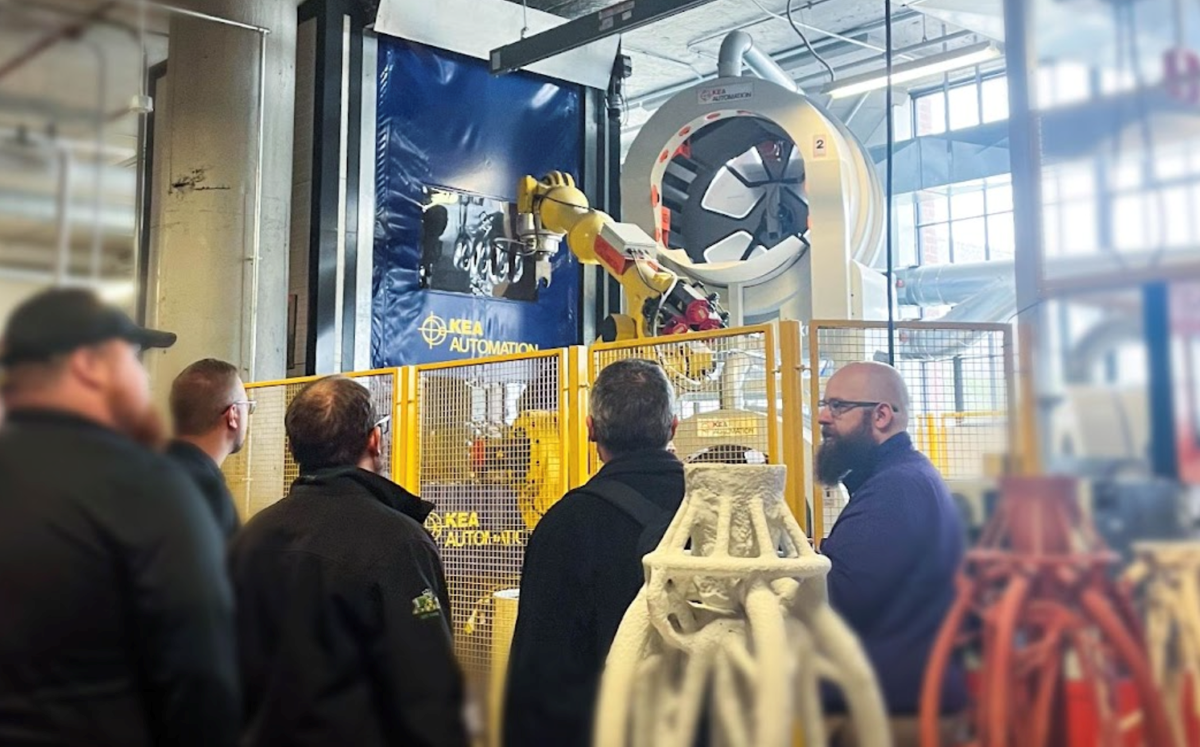UNI supports the nation’s casting supply chain in partnership with the Department of Defense
The foundry and casting industry has been shrinking, with estimates that more than 50% of foundries have closed since 2010. This trend is concerning, particularly within the Department of Defense (DoD) supply chain. These foundries and casters create products contained in 90% of all manufactured goods, and support nearly 800,000 jobs and a payroll of $8 billion each year.
The University of Northern Iowa was one of only two universities selected to participate in a Foundry 4.0 initiative led by the Defense Logistics Agency (DLA) in partnership with the DoD. The project sought to address the challenges posed by aging manual technologies and included three UNI programs under the department of Business & Community Services: the Foundry 4.0 Center, the Metal Casting Center and the Center for Business Growth & Innovation (CBGI). These programs worked collaboratively to integrate advanced Foundry 4.0 technologies, including dual robotics post processing, instrument casting smart technologies, automation, and IoT (Industrial Internet of Things) sensors.
Since it launched in 2021, this project has already made an impact:
- 7,401 individuals participated in conferences, seminars, training and events
- 685 industry professionals attended workshops to learn about Foundry 4.0 topics
- 242 companies were directly engaged the project
- 145 subject matter experts provided expertise to participating companies
- 19 companies participated in extensive technology readiness assessments
“UNI was able to apply a unique set of skills and abilities to the DLA’s Supply Chain Enhancement Project,” said Todd E. Hutcheson, director of the CBGI. “The technical expertise of UNI’s Foundry 4.0 and Metal Casting Centers, combined with the business value creation skill set of the Center for Business Growth & Innovation, provide technical automation and outreach assistance that was groundbreaking.”

The DLA project scope of work has recently been completed, but UNI is already working on the next steps that bridge the skills and opportunity gap by creating alternative learning pathways to prepare the current and future workforce for rapidly evolving skills and industries. These efforts will continue to reduce costs, shorten deadlines, and deploy excellence in quality and customer satisfaction for a sustainable, resilient future.
